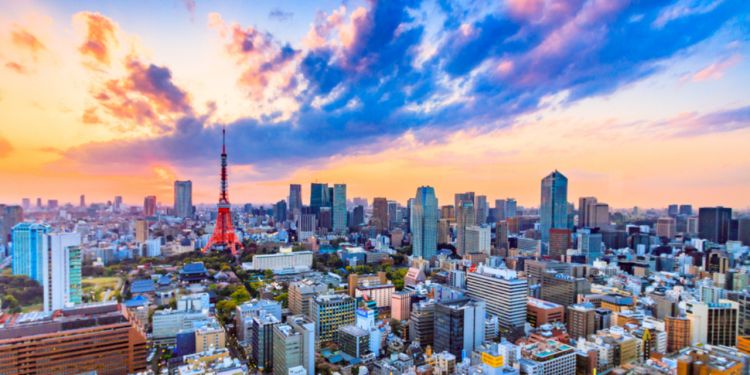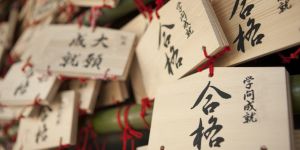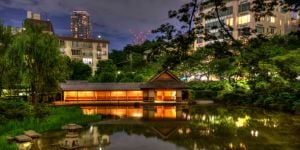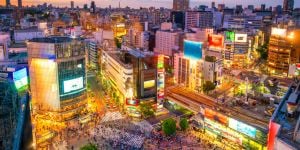
You would like to study in Japan and have chosen to settle in Tokyo? The Japanese capital is an excellent starting point to begin your adventure in Japan. What are the particularities of studying in the Land of the Rising Sun? What are the benefits of studying in Tokyo? Here is a practical guide to everything you need to know before leaving to study in Japan.
Schooling in Japan
Schooling in Japan is mandatory for children aged 6 to 15. It is the "gimu gakkou" (compulsory school). The school year starts in April.
The school system in Japan includes six-year elementary schools, three-year junior high schools, and three-year high schools. After that, students can attend junior colleges (two or three years) or colleges and universities (four years or more). Compulsory education lasts for 9 years, from elementary to junior high school.
There is a system called “Special Needs Education” for students with physical or mental challenges, which helps them develop self-reliance and improve their social participation.
School vacations
Typically, the academic year starts in April and finishes in March of the next year. Schools usually follow a three-semester schedule:
- the first semester: from April to August;
- the second semester: from September to December;
- the third semester: from January to March.
So, school children in Japan have three breaks during summer (from late July to late August), winter (from late December to early January), and spring (from late March to early April).
High schools in Japan
In Japan, high school is where students complete junior high school, and others can continue their education. Unlike junior high school, attending high school is not mandatory, so students must pass an entrance examination. High schools offer different types of education, such as full-time, part-time, and correspondence courses:
- Full-time high school: daily attendance from morning to early evening;
- Part-time high school: daily attendance, with 4-hour classes a day, either in the morning, afternoon, or evening;
- Correspondence high school: mainly at-home study, with around 2 to 4 times at school a month. Students submit their assignments and reports to teachers, who review and grade them.
Graduating from high school allows students to enter universities and other educational institutions.
Higher education in Japan
In Japan, students begin higher education after completing 12 years of formal education. However, someone with less than 12 years of formal education must finish a one- or two-year preparatory course before entering higher education. Higher education institutions in Japan offer bachelor's, master's, doctorates, and professional degrees. Additionally, there are junior colleges that grant associate's degrees, colleges of technology that provide practical and creative education for 5 years, and specialized training colleges that offer courses to develop professional or practical skills and promote cultural growth.
University admission requirements in Japan
As mentioned above, international students wishing to study in Japan must have completed 12 years of education (elementary and secondary school). Students who have previously studied in a country where elementary and secondary schooling (including high school) lasts less than 12 years but are older than 18 years must successfully complete a preparatory course to qualify.
Applying for a visa to study in Japan
You must apply for a visa to study in Japan in person. Before applying for a visa, your institution must send you a Certificate of Eligibility (CoE), which is required to apply for a student visa.
Arriving in Tokyo
Rights and duties of international students in Tokyo
Residence status for students is granted for terms ranging from 3 months to 4 years and 3 months. If the initial period of stay is too short, you can always apply for an extension locally.
If you wish to return home during school vacations, you will have to inform your school and present a Disembarkation Card for Reentrant and your residence card to the immigration authorities at the airport.
International students are allowed to work part-time in Japan (baito), up to a maximum of 28 hours per week. Make sure you have completed the formalities authorizing you to work (details of the procedures here).
EJU: the university admission test
You must pass the EJU (Examination for Japanese University Admission for International Students) to be accepted into the university of your choice. The EJU evaluates your level of Japanese and your academic knowledge. Depending on your chosen program, you will be asked to answer questions on science, mathematics, general knowledge about Japan and the country's relations with the world, and the Japanese language. The EJU is held twice a year, in June and November. Register early to avoid missing the first day of school (April).
Exceptions to the EJU
If you are on an exchange program in Japan, you will not necessarily have to take the EJU. Check with your university whether it has an agreement with Japan. If it does, your university will take care of the necessary procedures to allow you to study in Japan. However, your host university reserves the right to evaluate your level. Even if you are an exchange student, you must have the best possible record in order to be accepted.
Do you need to take the JLPT?
The JLPT (Japanese Language Proficiency Test) is not mandatory but strongly recommended for international students.
Language schools in Japan
To improve your language skills, consider joining a Japanese language school before starting college or choose only the language school before entering the Japanese job market.
There are two types of language schools in Japan:
- Private institutions with classroom courses, preparatory courses for university admission, etc. But to get the visa, you have to choose a government-recognized institution;
- Preparatory programs offered by universities and private pre-university institutions (e.g., Waseda). Once the program is validated, you can apply to the same faculty or choose another institution.
The Japanese university system
In Japan, the curriculum is divided into the following degrees: Gakushi (bachelor's degree), Shûshi (master's degree), and Hakushi (doctorate). The Japanese bachelor's degree is prepared in 4 years.
Universities are divided into 3 groups:
- Kokuritsu Daigaku: National universities are administered by the government and are accessible through a national entrance test. They function like corporations and are essentially financed by taxes. They are linked to the business world;
- Kôristu Daigaku: Public universities are managed by a prefecture or a city and accessible through a national entrance test. The fees received are those of the prefecture and the city. Kôristu Daigaku is closely linked to regional companies and promotes the development of the local economy;
- Shiritsu Daigaku: Private universities are accessible by entrance tests created by the institution.
Japan is also home to technical institutions:
- Tanki Daigaku: These are short-cycle institutions. Students follow the same courses as in traditional faculties, but they are given a more practical approach to prepare them for the job market (internships in companies — jishu);
- Senmon Gakkou: Technical high schools, from high school to university. They target professional sectors like arts, fashion, industry, agriculture, and trade.
To gain admission to a Japanese university or junior college program taught in Japanese, individuals must meet certain requirements. They must have completed the N1 or N2 JLPT examination, which tests their Japanese language proficiency. Additionally, they must score a minimum of 250 points of the EJU exam for the Japanese section. These criteria ensure that students have a strong command of the Japanese language before entering the program.
Do you need to speak Japanese to study in Japan?
Some Japanese universities offer courses exclusively in Japanese. Others offer programs in English.
International students from non-English speaking countries who wish to study in English must have passed the TOEFL or IELTS (International English Language Testing System). Minimum scores vary from school to school.
However, it is recommended to learn Japanese before immigrating to Japan. You will then be able to improve your language skills while in Japan. Some universities offer free Japanese language courses to their students (source: University of Tokyo).
Tokyo's leading universities
Studying in Tokyo means taking advantage of a unique living environment: a dynamic and attractive megalopolis whose universities, starting with the famous University of Tokyo, are among the most renowned in the world.
Tokyo's national universities
-
The University of Tokyo
Founded in 1877, "Todai" (contraction of "Tokyo daigaku") is the most prestigious university in Japan. It has produced 13 Nobel Prize winners, 5 astronauts, and 16 prime ministers of Japan. It has developed programs in English.
More information: Todai website
-
The Tokyo Institute of Technology
Often abbreviated to "Tokyo Tech", this institution is known for its programs in science and engineering. Its "Global Scientists and Engineers" program is taught in English.
More information: Tokyo Tech website
-
Tokyo Medical and Dental University
Tokyo Medical and Dental University (TMDU) is the only university in Japan that has a graduate faculty of medical and dental sciences. Its dentistry program is taught in English.
More information: TMDU website
-
Hitotsubashi University
Hitotsubashi University specializes in social sciences. It has strong relationships with universities abroad. It offers several courses in English.
More information: Hitotsubashi University website
-
Tokyo University of Agriculture and Technology
Tokyo University of Agriculture and Technology (TUAT) specializes in agriculture and engineering. It offers programs in English.
More information: TUAT website
-
Ochanomizu University
Reserved for women, Ochanomizu University offers training in hotel administration, industrial and professional relations, or veterinary medicine. Most of the courses are given in Japanese.
More information: Ochanomizu University website
Public universities in Tokyo
-
Tokyo Metropolitan University (TMU)
TMU is one of the most renowned public research universities in Japan. It serves as a think tank for the Tokyo Metropolitan Government. Programs are offered in Japanese.
Private universities in Tokyo
-
Waseda University
Japan's first private university, Waseda, has many famous students, including author Haruki Murakami and Tadashi Yanai, founder of the clothing brand UNIQLO. Waseda has various faculties, namely law, political science, economics, humanities, and social sciences. It offers several programs in English.
More information: Waseda website
-
Keio University
Keio daigaku (Keidai) is a private university and a world-renowned research center. Eight winners of the Keio Medical Science Award have been nominated for the Nobel Prize. Three former Prime Ministers and two astronauts have attended the university. Keio has a strong academic background and promotes its philosophy of openness to the world and gender equality. Keio has solid international ties and offers a wide range of courses taught in English.
More information: Keio University website
-
Tokyo University of Science (TUS)
TUS holds the national record for the number of Master of Science degrees awarded. Its strengths include nearly 390 research laboratories focused on innovation, technical progress, and high technology.
-
Aoyama Gakuin University (AGU)
AGU is a century-old Christian university with an international outlook. Its faculty of literature includes a department of English and French. Many celebrities have attended AGU, including the writer Atsuko Asano, the volleyball player Naoko Yokote, the scriptwriter Nobuyuki Isshiki, and the actress Megumi Yokohama. AGU is the third most popular university in Japan.
-
Yokohama City University
YCU is a small public university with a good life science curriculum and two academic hospitals. The university has a good reputation and promotes exchanges, inviting international students to learn about its courses.
-
Yokohama National University
Yokohama National University (YNU) has three areas of expertise: humanities and social sciences, sciences, and engineering. As part of its policy of welcoming international students, the university offers some programs in English.
Senmon gakkou in Tokyo
Senmon gakkou, technical schools that prepare students for business, are as highly regarded as Japanese universities. They exist in all sectors: construction, hotel and restaurant industry, medical, personal assistance, art, etc. More and more foreigners attracted by the manga and animation professions are choosing to study in Japan.
Manga and animation schools in Tokyo
Many passionate people dream of becoming a mangaka (manga author), a dubbing artist, an animator, or an illustrator, but the market is very competitive. Many young Japanese choose to join a senmon gakkou. Some of these institutions, like Tokyo Animation College or Tokyo Design Gakuin are among the best schools.
These schools are considered a big family, where each member needs the other: the writing department trains the scriptwriter. The scripts are used for the mangaka apprentices (the mangaka can do only the drawing or do both: script and drawing). The students of the animation department will animate the manga created. Aspiring seiyu (voice actors) will then put their voices on the animated characters. This kind of large-scale project can only be imagined in these senmon gakkou, which have all the necessary equipment and know-how.
Beyond learning to become a manga author, a scriptwriter, an illustrator, a character designer, or a dubbing artist in these schools, you can learn much more in these schools. Video game professions are also well represented, namely in the fields of visual imaging, 3D animation, special effects, programming, etc. The Tokyo Design Gakuin also offers training in everything related to design, like in its faculty of architecture, or those dedicated to make-up or fashion.
Without a surprise, it is recommended that students speak Japanese well in order to attend these institutions.
Scholarships for international students in Tokyo
Studying in Japan can be expensive. According to the Japan Student Services Organization (JASSO) website, the annual fee for an undergraduate or graduate program at a national university can reach 820,000 yen per year. Fees can go up to about 1,100,000 yen for a private university, excluding degree in medicine, pharmacology, or dentistry.
Many variables contribute to the high cost of education in Japan, such as the reputation of the institution, its status (public or private), the location, the variety of programs offered, and the presence of a university campus.
The tuition fee waiver programs or scholarships offered in Japan are more comprehensive than in most other countries, but you can only apply to them once you have been admitted to a school. For a complete list of scholarships available to international students in Japan, click here. You should also check with your university or region whether funding programs are available.
To find out more about scholarships, you can explore the following scholarships:
- MEXT Scholarship (Monbukagakusho);
- MEXT Honors Scholarship;
- University of Tokyo Special Scholarship for International Students University;
- Scholarship for PEAK students.
See more details here.
Student support in Tokyo
In addition to the international student support offices found on most university campuses, the JASSO offers a variety of support programs for international students in Tokyo. These include scholarships, exchange programs, and information about studying in Japan. Study Japan also offers a comprehensive guide for prospective students.
Most universities in Tokyo develop their own support programs. For example, Aoyama Gakuin University offers chat rooms for international students to practice their Japanese and learn about other cultures. Todai has a number of international student associations.
Extra tips for international students in Tokyo
Japan offers a unique setting for an enriching experience as an international student. Take the time to prepare yourself for this new exciting adventure.
Learn Japanese before moving to Japan to study. Learning from home will save you time and money. Refrain from relying too heavily on English. Even though schools and universities offer programs in English, you will miss out on a part of your expatriation experience if you cannot communicate in the local language. Learn both the spoken and written language. Don't be afraid of kanji.
Make the most of your stay in Japan to improve your language level passively. Explore the cities and culture, and engage in activities.
If you want to make friends in Tokyo more easily, think about student circles. They exist in all faculties and are a good way to socialize while improving your language skills.
Seek help if you are struggling. Moving abroad is an adventure in itself, but it can be even more intense, especially when you discover a totally different culture.
Tokyo is home to many districts, each offering a unique atmosphere. You can easily go from a young and trendy district like Harajuku, which is always crowded, to the calm of Meiji-Jingu or the Yoyogi gardens, which are only a few meters away on foot. Farther out, Fussa has a little countryside feel to it. In any case, feel free to discover Japan at your own pace.
Useful link:
Register for EJU with the Japan Student Services Organization (JASSO).
We do our best to provide accurate and up to date information. However, if you have noticed any inaccuracies in this article, please let us know in the comments section below.












Comments